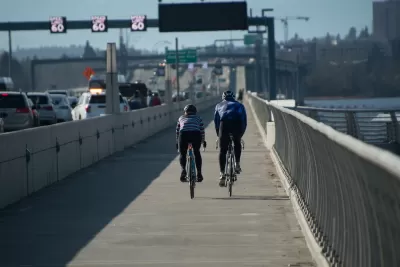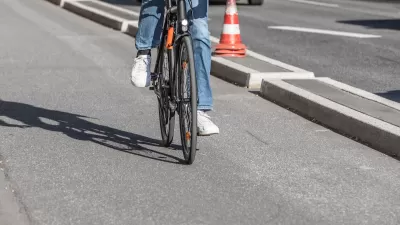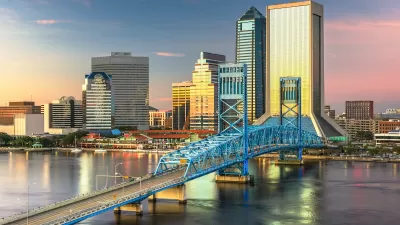Critics of a proposed $1.3 billion transportation levy say the package isn’t enough to keep up with inflation and rising costs and fails to support a shift away from car-oriented infrastructure.

Safe streets advocates in Seattle are calling on the city to propose a larger transportation levy to fund pedestrian safety and Complete Streets projects, arguing that the currently proposed $1.3 billion levy is “hardly enough to maintain the status quo, much less invest in new initiatives, especially once construction cost inflation is factored in.”
Erica C. Barnett describes the issue in PubliCola, noting that “the graphics-heavy proposal is noticeably light on specifics, the balance of spending categories skews heavily toward car-oriented projects, including road repairs, new pavement ‘on our busiest streets,’ and bridge maintenance, including upgrades and planning for the replacement of the Ballard and Magnolia Bridges.”
The new proposal cuts spending for transit connections, pedestrian projects, and freight mobility. Meanwhile, pedestrian and traffic deaths have been rising since the city adopted of a Vision Zero pledge in 2015. If the city installs sidewalks at the rate proposed in the plan, it would take 400 years to complete the city’s sidewalk network.
According to Barnett, “Polling by the mayor’s office revealed that voters would have approved a $1.7 billion levy—the highest level tested—but Harrell opted to go for a status-quo renewal, prompting many advocates to question why (and push for a more ambitious plan).”
FULL STORY: Advocates Urge City to Adopt More Ambitious, Less Car-Centric Transportation Levy

Planetizen Federal Action Tracker
A weekly monitor of how Trump’s orders and actions are impacting planners and planning in America.

Maui's Vacation Rental Debate Turns Ugly
Verbal attacks, misinformation campaigns and fistfights plague a high-stakes debate to convert thousands of vacation rentals into long-term housing.

San Francisco Suspends Traffic Calming Amidst Record Deaths
Citing “a challenging fiscal landscape,” the city will cease the program on the heels of 42 traffic deaths, including 24 pedestrians.

Defunct Pittsburgh Power Plant to Become Residential Tower
A decommissioned steam heat plant will be redeveloped into almost 100 affordable housing units.

Trump Prompts Restructuring of Transportation Research Board in “Unprecedented Overreach”
The TRB has eliminated more than half of its committees including those focused on climate, equity, and cities.

Amtrak Rolls Out New Orleans to Alabama “Mardi Gras” Train
The new service will operate morning and evening departures between Mobile and New Orleans.
Urban Design for Planners 1: Software Tools
This six-course series explores essential urban design concepts using open source software and equips planners with the tools they need to participate fully in the urban design process.
Planning for Universal Design
Learn the tools for implementing Universal Design in planning regulations.
Heyer Gruel & Associates PA
JM Goldson LLC
Custer County Colorado
City of Camden Redevelopment Agency
City of Astoria
Transportation Research & Education Center (TREC) at Portland State University
Jefferson Parish Government
Camden Redevelopment Agency
City of Claremont





























